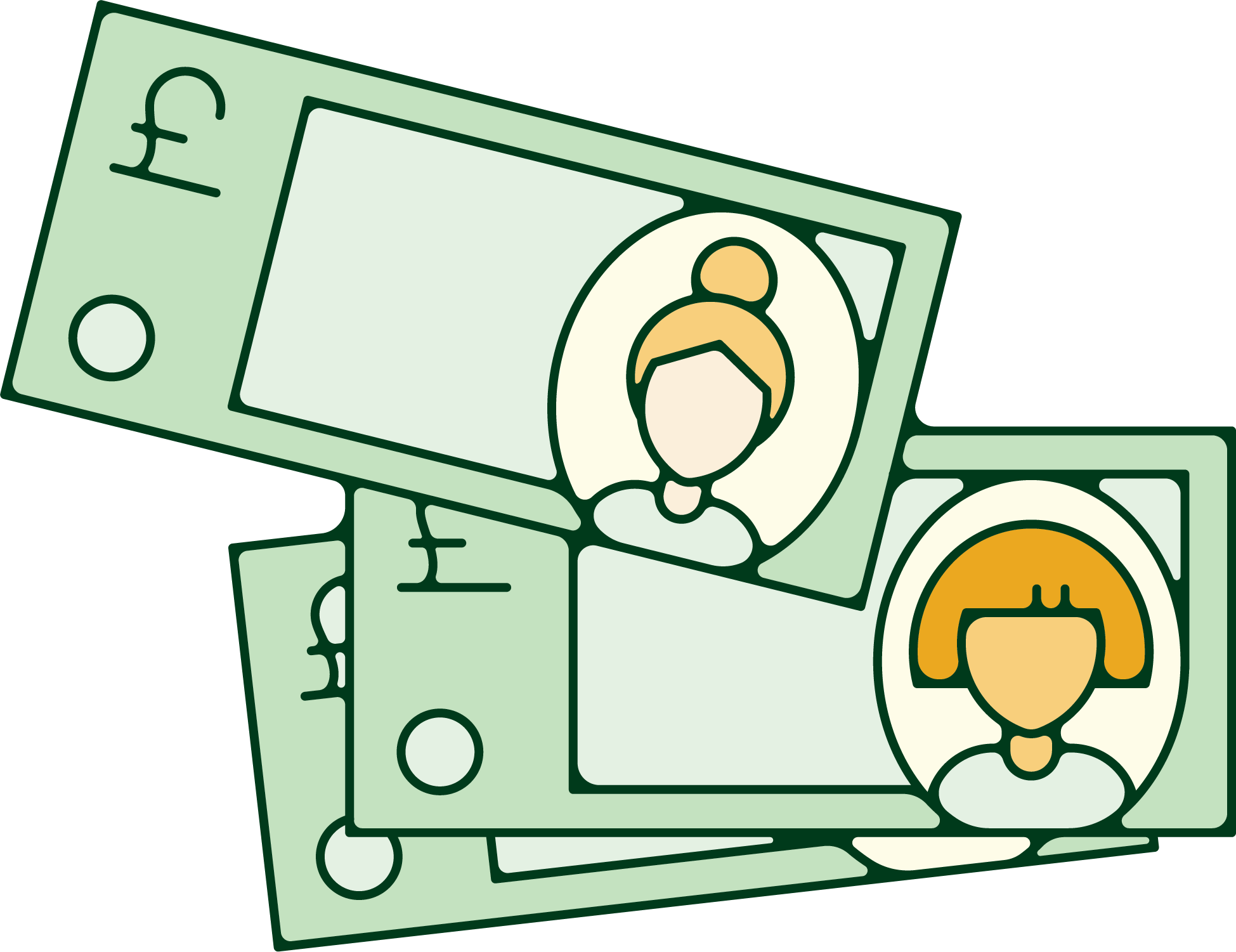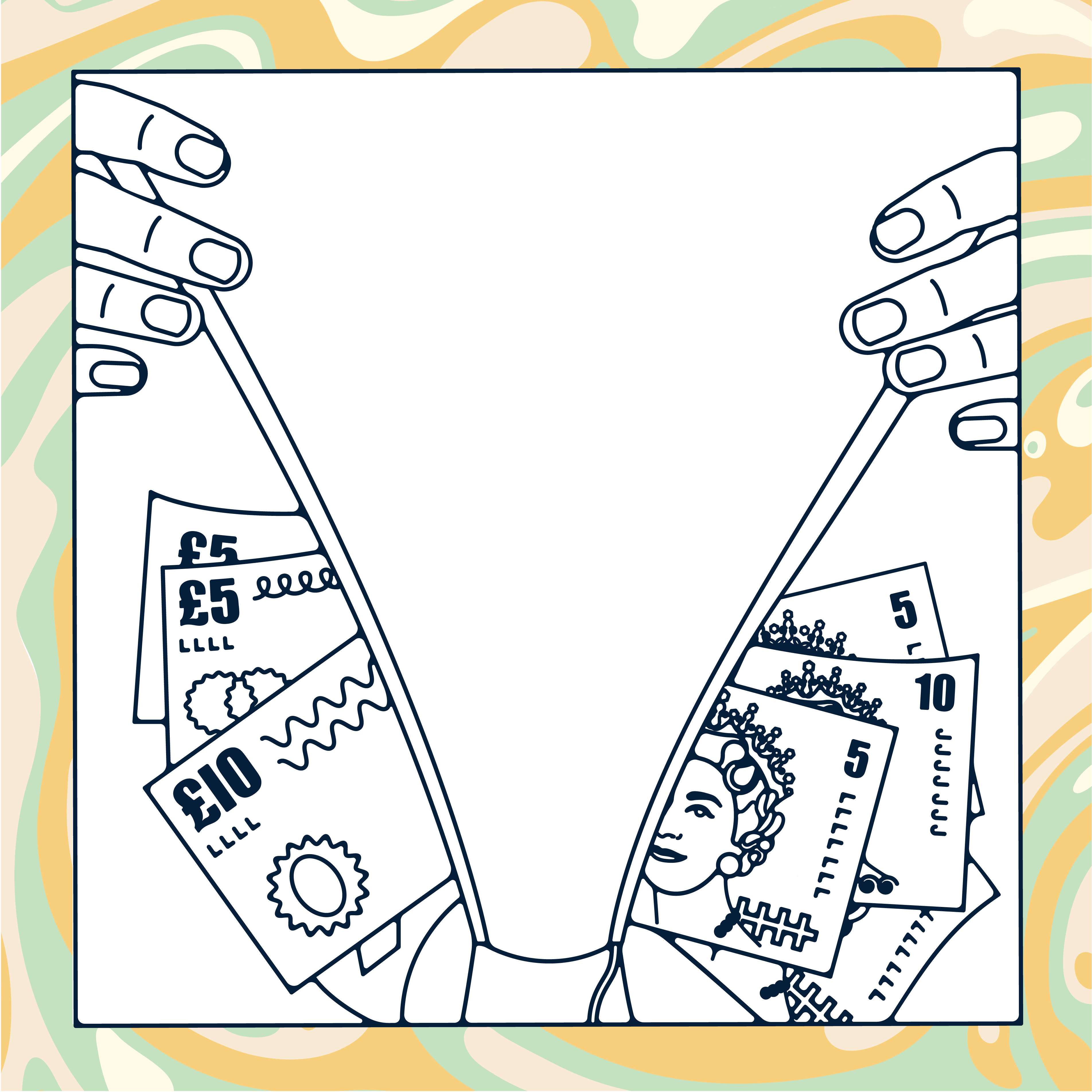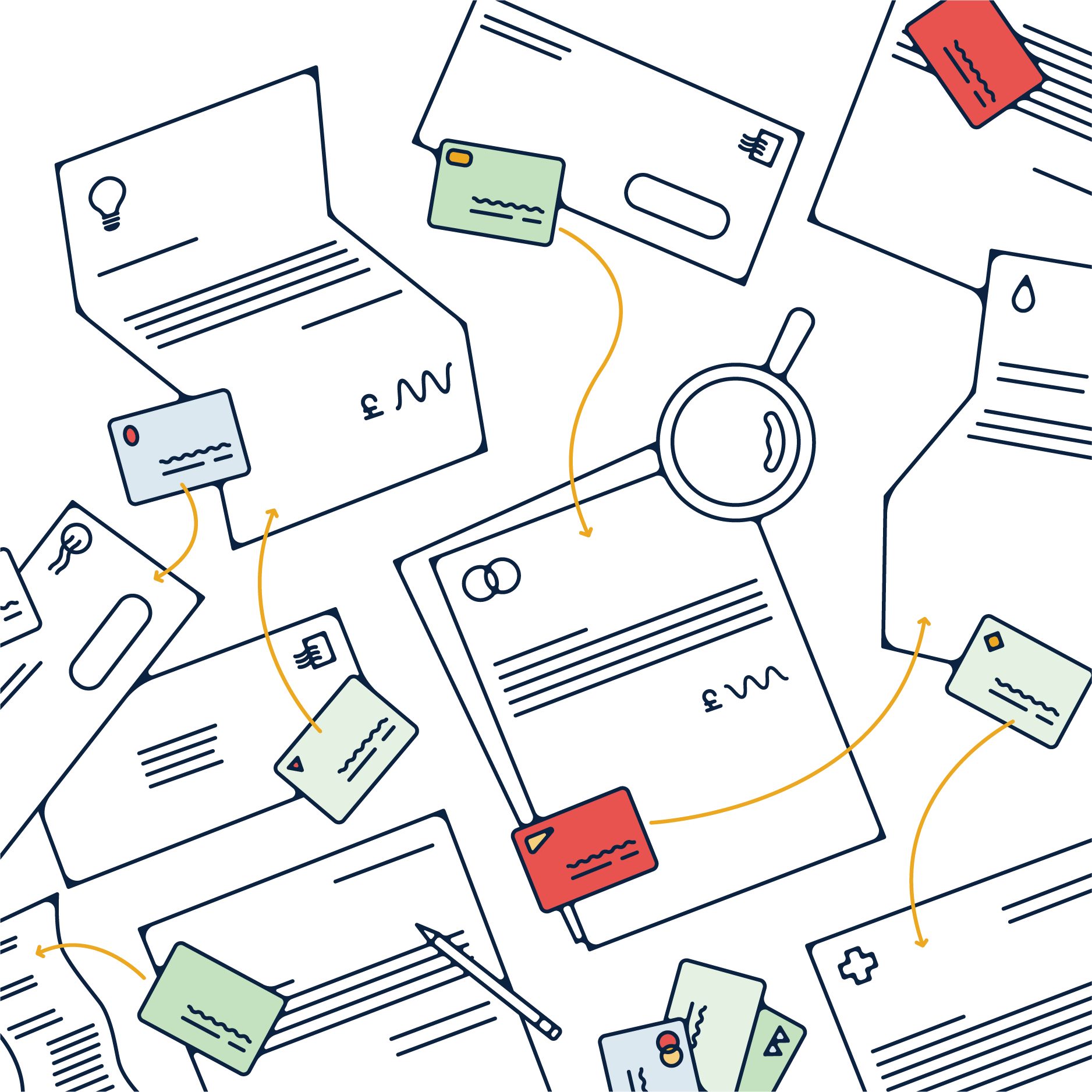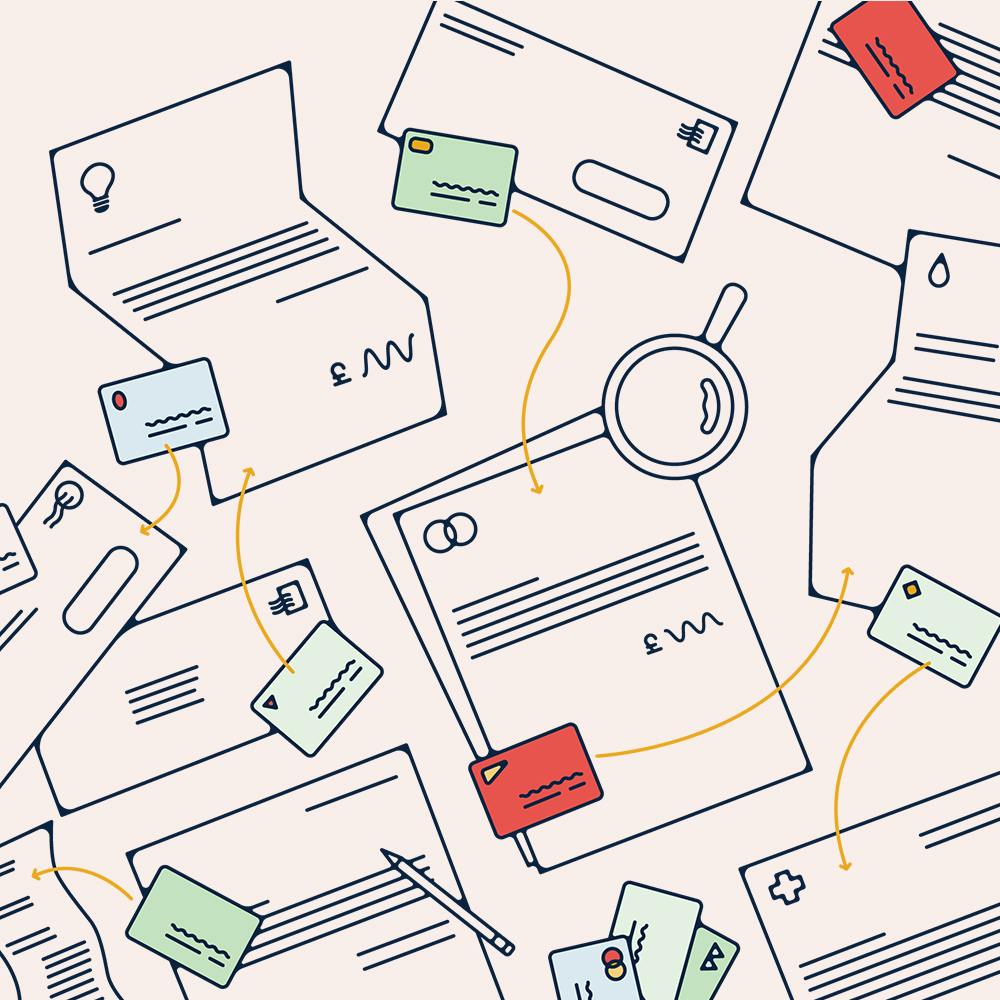Table of contents
Illustrated by Erin Rommel & Sabrina Bezerra
Personal finance is about more than just money management, it’s a wellness issue, particularly for women.
In light of the coronavirus pandemic and recent recession announcement, it’s important that we start viewing money in a holistic way – as something that exists in every corner of our lives, rather than only in our bank accounts.
Looking after your finances is almost never considered to be an act of self-care, but gaining control of your present and future financial situation is essential for complete wellbeing. Many finance spaces are still dominated by men, but in recent years there has been a steady trickle of female writers and money gurus emerging, using less traditional platforms, such as Instagram, to discuss cash in a different way.
This is important, because women’s financial lives often differ greatly from those of men. We’re in an odd triple bind from the very beginning: we are still paid less for equal work, we’re fed the idea that our appearance is the more important thing about us from a very early age, then flogged products to ‘fix’ ourselves, and then held up as paragons of frivolity the second we experience financial difficulty.

There is not just a gender pay gap, but a gender savings gap, gender pension gap and gender debt gap, too. The average woman is set to experience a shortfall of £223,000 in earnings and £106,000 in pensions over the course of her lifetime, and will have just one fifth of the amount in savings compared to her male contemporaries by the age of 65.
Black, Asian and minority ethnic women get a double hit, with the combined effect of the ethnicity and gender wealth gaps leaving them at an unjust disadvantage when it comes to money.
Women represent 64% of people struggling with debt in the UK and are far more likely to feel anxious about their finances, with 93% saying they were worried about their long-term financial plans compared to only 24% of men.
With this in mind, it’s important that women take an interest in their finances as early as possible, in order that we might start to redress the balance and build a secure and positive future. One where money is not the be-all and end-all, but where a lack of it doesn’t cause us stress and anxiety, either.
There is also the fact that people who menstruate have to fork out around £4,800 over the course of their lifetime in order to service their periods, and that the understanding and treatment of reproductive health is still miles behind where it should be in the UK.

For example, it takes an average of 7.5 years to get an endometriosis diagnosis, in spite of the fact that the condition costs the UK economy £8.2 billion per year in healthcare costs and loss of work.
Someone close to me has been trying to get a diagnosis for debilitating and frequent abdominal pain for over two years, and has finally resorted to a £200 private consultation with a specialist. It’s not something she can easily afford, but her choice is between paying a fee or living with that pain indefinitely.
I know first hand the damage that a poor relationship with money can do to your mental health and emotional wellbeing, having found myself with over £27,000 in personal debt and absolutely no savings at the age of 29.
I had been juggling several different credit accounts for the longest time, having accrued small amounts of debt here and there throughout my late teens and early twenties, and then cemented the total with my wedding in 2017.
We had two young children, and with childcare costs and the impact of statutory maternity pay weighing heavily on our bank accounts, things continued to spiral and I continued to bury my head in the sand until March 2019, where a brief conversation with an advisor at my bank brought things into sharp focus.
If we didn’t turn things around soon, we were going to have to go down the route of a formal debt resolution plan, and that wasn’t what we wanted. Just over a year on, and thanks to some deep changes in both our mindset and our habits, as well as some improvements in our circumstance, we have paid off over £16,000, and are finally able to start planning the future that we want for ourselves and our family.
Whether you’re dealing with debt, struggle to save, or are simply sick of spending those last couple of days before payday on a knife-edge, dealing with a difficult financial situation can feel like an insurmountable task – but there are some shifts in habit and mindset that can transform your outlook.

Use money as a tool to build the life that you want
We often think of money as something that exists only in our bank accounts, when in actual fact, it has its tendrils in every corner of our lives.
In order to build a positive financial future, it’s sometimes necessary to sift through and address those money hang-ups, whatever they might be. Throw any ideas about how ‘good’ or ‘bad’ with money you might be in the bin, and start seeing your money as a tool to be wielded however you wish, rather than something that defines and controls you.
You can’t earn your way out of a bad relationship with money
If you don’t have a handle on your income and outgoings, it will never matter how much you earn (as long as you’re earning a living wage). Creating a budget that works for you, that takes into account your essential outgoings and gives you a plan for what to do with the rest, will help you to feel in control.
If you slip up or overspend, it can be tempted to bury your head right back in the sand again, but mistakes are part of the process, and this is a lifetime habit, not some sort of financial crash diet. Knowing what’s going on in your bank account, what you can afford to spend and what you can afford to save will help you to navigate any bumps in the road, such as unexpected bills or even illness or redundancy.
Try creating a budget spreadsheet that also tracks expenses, and make a habit of updating it. You could make it a Sunday night ritual, and always feel ready for the week ahead.
Don’t separate the pleasure of buying from the pain of paying
A huge part of the temptation with credit spending is that you get to receive the reward long before you have to pay the price.
Credit cards and Buy Now Pay Later schemes make compulsive or emotional spending easier, because having to live without the cash isn’t factored into your decision making process. It’s only later, when you have to pay up or see a rapidly increasing balance on your card that you have to start worrying.
Making mindful spending decisions means acknowledging the cost of the product, and deciding whether or not that aligns with its value to you. Being considered in your shopping decisions will save you both money and stress.
There may, of course, be times when using credit to pay for things that you need is not an option, but a necessity, which is certainly a situation that I’ve experienced in the past. If this is the case, distinguishing between ‘want’ and ‘need’ is a really important skill to learn - because no matter how desirable something is, it’s not worth your long-term emotional and financial health.
For those things you need, try to budget them into your normal spending. If your income isn’t enough to cover your expenses or you’re stuck in a cycle of borrowing, it’s worth contacting the Money Advice Service or StepChange - there are so many ways in which they can help you.
You may be able to save a little, even if money is tight
I used to think that I would start saving when I was earning more, but every time I got a pay rise, I would just spend more instead.
Saving a proportion of your income is a good habit to get into no matter how much you’re earning – around 20% if possible, and it’s best to transfer it to your savings the day you get paid, or set up a payday standing order.
Having savings gives an important financial safety net, but it’s also beneficial to your mental wellbeing, and helps you to feel more confident in your financial decisions, too.
If you find saving difficult, smart savings apps like Chip and Plum can help – they use an algorithm to automatically transfer small amounts every few days, but the totals soon build up.
Investing is for everyone – and it’s more accessible now than ever before
In the UK, men hold twice the investment wealth of women – yet another symptom of our lower financial confidence.
Saving money is great, and it’s good to have an easily accessible emergency fund, but investing your money will help it to grow at a time when interest rates are rock bottom. You can choose ethical funds to invest in, and apps like Moneybox or web platforms like Wealthify make it very straightforward if you’re looking to build your confidence.
The key is to stay in control
It may be the case that saving or investing really isn’t affordable for you right now – you might be trying to pay off debt or even just trying to make it through to payday.
Many salaries are stretched to their absolute limits thanks to the high cost of living and wage stagnation, and the coronavirus pandemic has made things even more difficult for many people.
If this is the case for you, just making sure that you know what’s coming in and what’s going out, and feeling that you have control over your money, is a great place to start.
Big changes in policy and attitude are needed in order to truly level the playing field for a woman, and WOC in particular, but in taking control over our own money situation, we as individuals can start to improve our financial outlook and achieve our goals.






